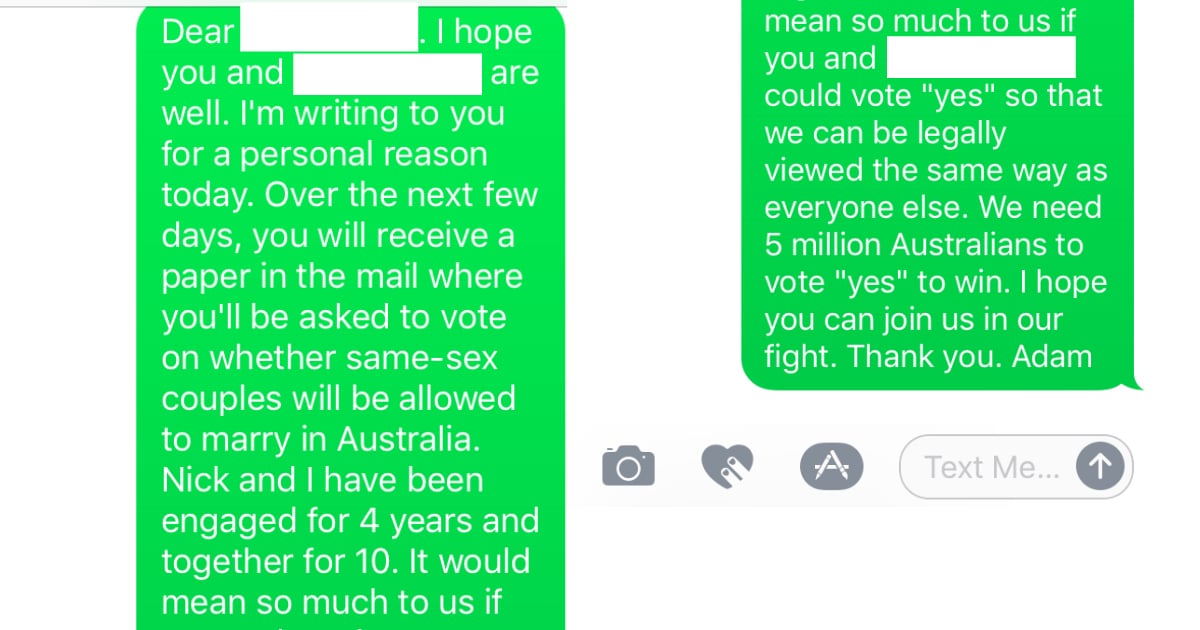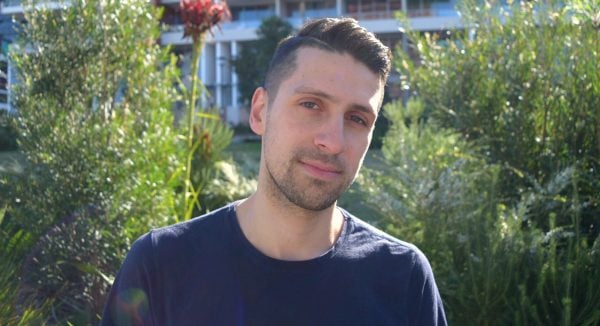It’s been four days since I sent this text message to a family member.
“Dear [ ]. I hope you are well. I’m writing to you for a personal reason today. Over the next few days, you will receive a paper in the mail where you’ll be asked to vote on whether same-sex couples will be allowed to marry in Australia. Nick and I have been engaged for four years and together for 10. It would mean so much to us if you and [family member] could vote “yes” so that we can be legally viewed the same way as everyone else. We need 5 million Australians to vote “yes” to win. I hope you can join us in our fight. Thank you. Adam”

This relative has been there since I was in nappies. It wasn't that long ago when my partner and I were in their home having a nice family get-together.






























































































